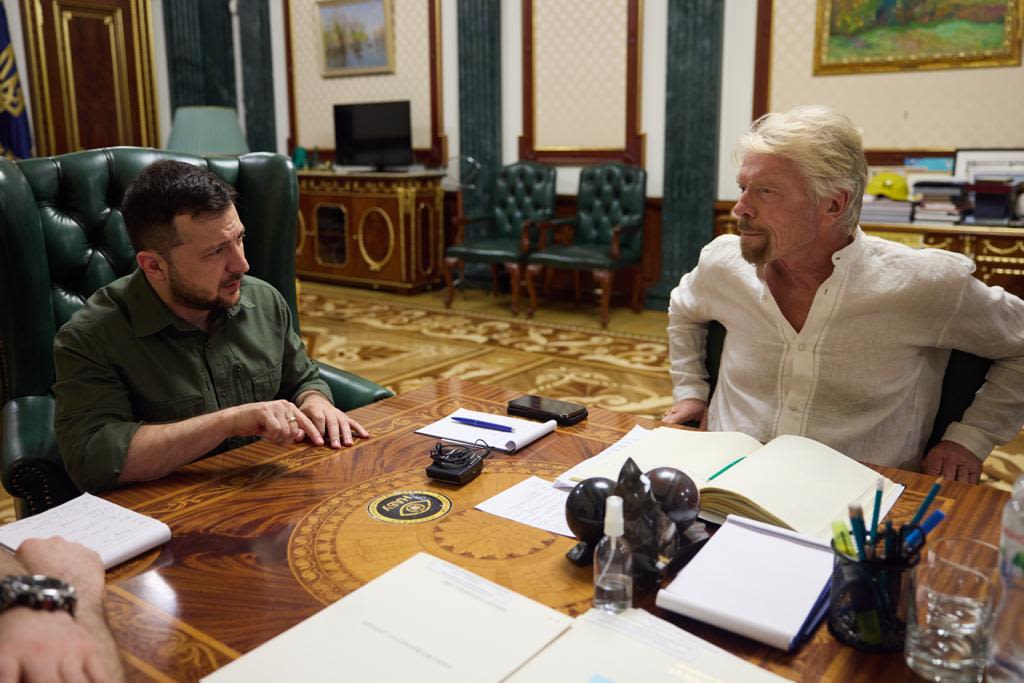Entering another year of war in Ukraine
On 22 February 2022, I joined a video call with Ukraine’s President Volodymyr Zelensky, who was then facing a terrifying build-up of Russian troops along his country’s borders. Calm and composed, he talked at length about his strategy for Ukraine’s economic transformation and shared his plans to bring foreign investment into the Donbass region, the Eastern part of Ukraine that had seen so much unrest and conflict. The President understood that the prospect of economic growth and prosperity was key to creating peace and stability in the region. I agreed and offered to take his message to other Western business leaders, who, I was sure, would be very sympathetic to the idea.
Less than 48 hours later, Russian troops began their full-scale invasion of Ukraine. Supported by relentless missile attacks and air raids on Ukraine’s military and civilian infrastructure, they launched a war of aggression that all but shattered President Zelensky’s vision of peaceful economic development. One year on, the toll of Putin’s self-serving assault on Ukraine’s sovereignty has been staggering. Some estimates put the combined number of battlefield deaths on both sides at over 200,000. Caught between the frontlines or targeted by indiscriminate Russian shelling, thousands of Ukrainian civilians have been killed, too. And then there are the countless victims of chilling war crimes committed by Russian troops and mercenaries marauding in occupied villages and cities.
The refugee crisis caused by the conflict is the most severe one Europe has seen since the end of World War II. More than eight million Ukrainians, roughly 20% of the country’s population, have sought refuge across Europe – the vast majority women and children. Millions more are internally displaced. But while roughly 20% of Ukraine’s territory, from Crimea to the Donbass, remain under Russian control, it is also clear that Putin’s strategy is failing, even as he continues to send wave after wave of poorly trained and ill-equipped conscripts into battle. Thanks to Ukrainians’ resilience and the bravery of its armed forces supported by Western weapons, Russian advances have come to a screeching halt, producing nothing like the swift victory Russian propagandists (and some in the West, too) had predicted. Instead, Russia’s leaders have fled into denial, delusion and threats of escalation.
And yet, I’m afraid it will take more than mounting casualties, international isolation, and reputational damage to force Putin to the negotiating table on terms other than his own. Leaving aside Ukraine’s courageous allies in central Europe and the Baltics who have always understood the nature of Russia’s threat, other Western allies have wasted much time to reach consensus on the weapons systems needed to push back the assailants. I am encouraged by the commitments made by the US, Germany and others in recent weeks, but these weapons systems must now be delivered at scale and without further delay.
Equally challenging is the inconsistency of international sanctions. The EU and the US have introduced comprehensive restrictions on trade with Russia, and the speed at which European countries, particularly Germany, have managed to reduce or eliminate their dependency on Russian gas is impressive. Yet, loopholes, exceptions, and the unwillingness of other nations to join in have hindered efforts to stop capital flows into Putin’s coffers. International pressure on nations still doing business with Russia must be dialled up now.
Global business needs to do its part, too. But it’s not doing enough. Too many companies continue to profit from business with or in Russia, whilst contributing to Putin’s war machine through the taxes they pay, the supply chains they support, and the technology they share. A recent analysis of multinationals suggests that for every seven US dollars G7 countries gave in bilateral aid to Ukraine in 2022, their companies may have contributed one US dollar to the Kremlin in taxes. This kind of complicity must be called out, and governments committed to a rules-based international order need to step up and urge companies to cut their ties with Russia.
Some Western leaders have suggested that Ukraine “must not lose this war,” but I fear the sentiment falls short. Dictated peace is no peace at all. A fair and comprehensive peace agreement that restores Ukraine’s sovereignty and territorial integrity can only be achieved if Ukraine wins and Russian troops return home. Anything else would embolden authoritarian leaders to pursue their ambitions for generations to come. That’s too high a price for the world to pay.








